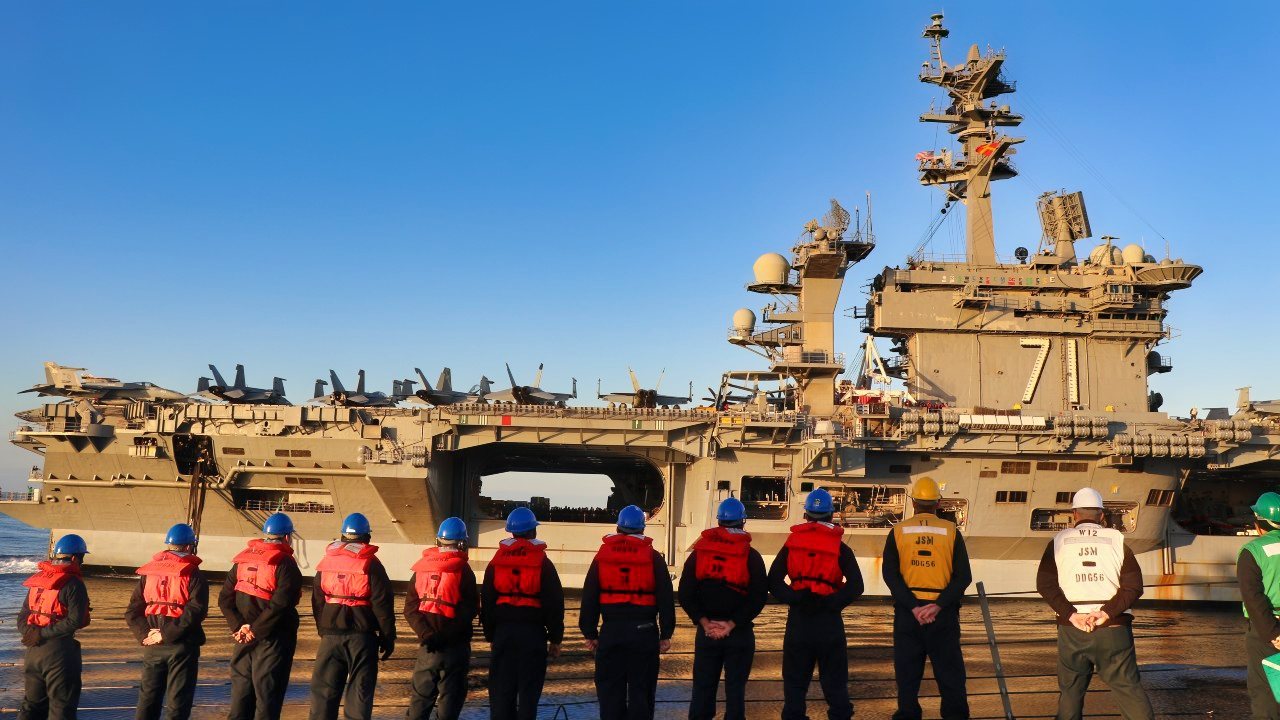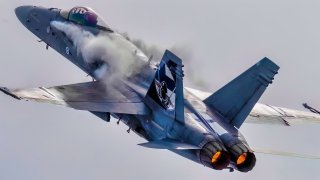Why Iran Won't Back Down to Joe Biden
Iran behaves as if it is a safe haven because it has thus far successfully deterred an American attack on its soil. As long as Tehran continues to do so, it will not cease to support its proxies, and they, in turn, will continue to attack American forces.
On January 28, the Iranian-backed Islamic Resistance in Iraq launched a drone strike on the American Tower 22 facility in Jordan that left a serviceman and two servicewomen dead and at least 34 others wounded. Almost immediately, President Biden and his leading officials announced that Washington would respond at a time and place of its choosing. Washington did not retaliate until February 2, however. Moreover, although the president publicly held Iran ultimately responsible for the attack, when American B-1 bombers launched their strikes on February 2, their targets were not to be found on Iranian territory. Instead, the more than eighty-five facilities linked to the militia and its Iranian sponsor, the Iranian Revolutionary Guard Corps Quds Force, were all located in either Syria or Iraq.
The following day, U.S. Navy F/A-18 and British Typhoon fighter aircraft, supported by Australia, Bahrain, Canada, Denmark, the Netherlands, and New Zealand, struck thirty-six Houthi targets at thirteen locations in what the U.S. Central Command described as “Iranian-backed Houthi terrorist-controlled areas of Yemen.” Ironically, despite Central Command’s characterization, the Biden administration removed the Houthis from the terrorist list three years ago and only re-designated them on January 17.
Presumably, the strike against the Houthis represented a continuation of Washington’s retaliation against Iran’s proxies. It was the third such major attack against the Iran-supported group, which has targeted international shipping for the past several months and has continued to do so despite previous Anglo-American attacks on its launchers and facilities.
Critics have pointed out that the Biden announcement of American plans to retaliate for the Tower 22 attack came so far ahead of the B-1 operation that Iranian personnel were able to evacuate the likely American targets well before the strike took place. Although as many as forty people reportedly died in the attack, it is not clear how many of them were Iranians. Given the American signals that preceded the operation, it is almost certain that senior Iranians located at the various targeted locations escaped to safety well before the bombers took off from Britain’s Lakenheath air base.
Some critics have urged Washington to retaliate against Iran itself. They argue that strikes against its proxies in Iraq, Syria, and Yemen simply have not deterred them from continuing their attacks on American forces and, in the case of the Houthis, international shipping. The administration has responded by asserting that an attack on Iranian targets would precipitate a wider Middle East war, which it seeks to avoid.
As has been the case since Russia attacked Ukraine, the administration is engaging in what many term self-deterrence. In the case of the Russian invasion of Ukraine, fear of Moscow unleashing nuclear weapons led Washington to hold back from delivering urgently needed arms to Kyiv for months. When America subsequently provided systems such as Patriot air defense systems, armored vehicles, and ATACMS missiles, Putin’s doomsday threats failed to materialize. A strong case can be made that had those and other systems arrived in Ukraine a year ago, Kyiv’s currently difficult military situation would have been quite different. In other words, unnecessary self-deterrence has prevented the United States from realizing its own stated objective of enabling Ukraine to reconquer the territory that Russia has seized.
Arguably, the administration is exhibiting the same hesitant behavior vis-a-vis Tehran, though Iran, unlike Russia, is not a nuclear superpower. Yet Iran, like Russia, is deterring the far more powerful United States. Indeed, Tehran is conducting a form of deterrence by denial, which a RAND Corporation study defines as “deter[ring] an action by making it infeasible or unlikely to succeed, thus denying a potential aggressor confidence in attaining its objectives.” The United States certainly has the power to act against Iran. Still, its fear of a wider war, especially during the current election year, has led the administration to lack “confidence in attaining its objectives.” Put simply, a White House whose electoral prospects are already shaky perceives that it cannot afford to risk launching another war in the Middle East.

The notion that a relatively weaker nation like Iran can deter the United States is one that even Washington’s critics find difficult to contemplate. Hence, they use the term “self-deterrence” instead of what could more accurately be termed “Iranian deterrence.” Nevertheless, the reality of the current crisis in the Middle East is that the Iran-backed militias are refusing to kowtow to Washington’s will despite increasing attacks on their military facilities and personnel. At the same time, Iran itself behaves as if it is a safe haven because it has thus far successfully deterred an American attack on its soil. As long as Tehran continues to do so, it will not cease to support its proxies, and they, in turn, will continue to attack American forces and allied and international shipping in defiance of both American threats and military strikes, no matter how often such strikes will take place and how widespread they might be.
About the Author
Dov S. Zakheim is Vice Chairman of the Foreign Policy Research Institute, a Senior Advisor at the Center for Strategic and International Studies, and a member of The National Interest Advisory Board. He is a former Under Secretary of Defense and Deputy Under Secretary of Defense.
Image: Shutterstock.

